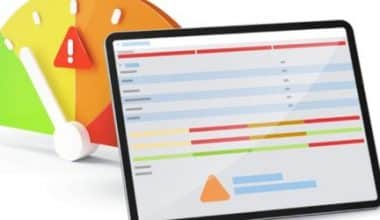Managers and employees alike have conflicting reactions when they hear the phrase “performance review.” A few people could be pumped up about this. Those around you will feel threatened. However, most managers experience anxiety due to the difficulty of providing useful feedback on employee performance. You must balance constructive criticism with coaching, and the danger of wandering into the incorrect area is always high. A good employee performance review should include and discuss communication, cooperation, dependability, work quality, problem-solving, and timeliness. But it’s not simple to write a successful review, and managers sometimes don’t get enough direction. As we examine the best practices for creating and executing thorough employee reviews, their many phrases, examples, and a performance review template, this article can serve as your finest resource.
Performance Reviews
Numerous psychological research indicates that consistent, unbiased, and varied feedback results in significant increases in employee performance. In other words, evidence from the workplace demonstrates that honest feedback raises employee satisfaction and reduces talent loss. However, in order to reap these advantages, one must make sure that each team member has regular performance evaluations (typically once or twice per year).
Reviewing an employee’s performance ought to include questions on their capacity for communication, teamwork, dependability, job quality, problem-solving, and punctuality.
Always provide feedback that is both professional and casual. When doing formal reviews, it is important to be truthful, to have face-to-face dialogues, to provide examples that are relevant, and to end on a good note.
Regular, thorough performance reviews can be made easier with the help of performance management software and employer associations.
Conducting regular performance reviews is a must for any company. The success of reviews, however, depends on how they are carried out. Depending on how it’s handled, a performance evaluation can either inspire your staff to achieve great things or turn them against you and your organization.
During a productive performance review, employees are able to reflect on their own development and pinpoint areas where they may make improvements while still contributing to the success of the company.
What is a Performance Review?
A performance review is a formal and systematic assessment that enables the manager to examine an employee’s work performance, recognize strengths and flaws, provide comments, and define goals for future productivity. It is a methodical procedure for assessing an employee’s prior performance and outlining expected future performance.
The two goals of reviews are to provide helpful criticism and recommend the following strategies for your personal and professional development. Other names for performance reviews include “performance assessments” and “appraisals”. For their entire workforce, many firms used to conduct performance reviews, but an increasing number of businesses are switching to a regular feedback performance management system where managers do quarterly monthly, or perhaps even weekly reviews. In fact, several businesses have completely stopped using formal performance assessments in lieu of one-on-one meetings and more informal manager check-ins.
When conducted properly, performance reviews can assist staff members in comprehending their strengths, areas for growth, how their job fits into the overall aims of the firm, and expectations. Effective managers may more quickly identify outstanding performers, address problems before they become intractable, convey expectations, promote growth and development, and increase employee engagement.
What Should I Write in a Performance Review?
During a performance evaluation, you can be honest about the person’s good points and areas for improvement. Being helpful and being excessively critical are two very different things, hence, there is a delicate line between them. Less than 20% of American workers concur that they had useful feedback within the previous week.
Performance evaluations comprise an appraisal of an employee’s accomplishments as well as a data-based analysis of their strengths, flaws, and potential areas for growth. Effective criticism does not pass judgment. It directs the employer toward improving the following time.
What Are Performance Reviews in the Workplace?
A performance review is a thorough evaluation that managers carry out to determine the development, strengths, and shortcomings of employees in order to increase productivity.
Employees who can anticipate performance reviews and use them as chances for introspection and growth are more likely to benefit from them. Within this framework of encouragement, managers and staff members can forge close relationships, have fruitful discussions, collaborate on goal-setting, and improve the caliber of work output.
Performance Reviews Examples
Employees receive feedback on their performance in the workplace, along with suggestions for improvement. Knowing which terms to use in your assessments can help folks on your team realize what is required of them and ways to do more effectively in the future.
What Are Examples of Good Performance?
Here are two examples of performance reviews that make use of descriptive language:
#1. Example of a Favorable Performance Review
Bradley performed above expectations in his capacity as the primary graphic designer this year. He was able to communicate effectively with his team and clientele. When faced with challenges, Bradley remains upbeat and performs well under pressure. He brings original and unique ideas that go above and beyond what the organization needs.
#2. Example of a Negative Performance Review
Although Kelvin has a passion and talent for reporting, his inability to collaborate well with others prevents him from becoming successful. Unfortunately, he frequently misses deadlines and shows no regard for other people. We want Kelvin to be a productive member of the reporting team and demonstrate solid time management in the upcoming year.
Performance Reviews Phrases
When writing a performance review, you have a variety of phrases available to you for describing a team member’s accomplishments to the organization. Here are some examples of terms that might be used while evaluating employee performance:
#1. Attendance
Keeping a regular and reliable attendance record is an essential component of employee effectiveness. The following are some examples of terms that are frequently used in performance reviews across a variety of industries:
- Maintained a healthy number of attendees throughout the entire year
- They show consideration for the time of their coworkers by appearing on time for team meetings.
- Attendance at company-wide meetings and training sessions was always impeccable in terms of punctuality.
#2. Productivity
You will complete a greater quantity of work if your team is more productive. The following is a list of phrases that may be useful to you when conducting your evaluation in relation to productivity:
- This month, sales numbers showed sustained growth.
- Exhibited a creative strategy for addressing the project Refused to take on high-priority responsibilities and assignments
- Taught additional members of the employees in the new company style guide in an efficient manner
- Acquired new customers on a regular basis while maintaining a high level of success.
- exhibited initiative in acquiring new skills in the workplace, including new software and technology.
- Throughout the entirety of the project, demonstrated effective collaboration with others.
#3. Communication
In your assessment, depending on how effectively an individual communicates, you might use the following language:
- Keep in touch with team members and clients well.
- Lacks the capacity for effective team management and leadership communication.
- Lacks the ability to listen intently to customers
#4. Attitude and Conduct
In the professional world, maintaining a cheerful attitude is really beneficial. In your assessment of the performance of the members of your team, you may choose to use phrases such as the following in relation to their behavior:
- Despite unanticipated challenges, keeping one’s composure and attitude upbeat throughout the situation.
- members of the team by providing support in an effective and efficient manner
- exhibited a readiness to pick up new abilities and methods on the job
- Exhibits a productive mindset in the face of challenging situations
- Lack of confidence in front of key stakeholders when delivering the advertising
- Stresses out a lot and frequently.
- unwilling to put in extra time at work
#5. Time Management
The ability to effectively manage one’s time can have a bearing on one’s overall effectiveness at work. Here are some examples of terms that can be used to evaluate the performance of time management:
- Excellent time management techniques when taking the project management plan into account.
- Arrives on time for work but misses project deadlines
Performance Review Template
Without a predetermined structure to lead the discussion, the performance review process can be difficult for both managers and employees. Implementing a performance review template makes ensuring that everyone in your organization interacts successfully.
If you’re having trouble creating a performance review template for usage by the entire firm, have a look at these 4 examples as a starting point:
- Forbes: Free performance review template
- Smartsheet: Annual employee review template
- Workforce: Three-month performance review template
- SHRM: Self-performance review template
What Are the Main Types of Performance Reviews?
Performance reviews come in a wide variety of formats and methods. We can categorize into two main types—multi-rater and single-input—to make things easier.
Whatever you decide, your procedure for conducting performance reviews should be relevant to both the employee and management and reflect your business culture.
- 360-degree review
- Self-review
- Peer review
- Upward feedback
- Team performance review
- Continuous performance conversations
- Annual performance review
- Management by objectives
- Probationary review
- Graphic rating scale
How Do You Prepare a Performance Review?
Employees should be encouraged to prepare themselves for performance reviews, regardless of whether the reviews are formal or informal. The following are some recommendations that can be made to employees in order to make the performance review a success for both parties:
#1. Prepare Notes.
Before each performance evaluation, tell your staff to take notes. They should write down the issues they wish to discuss, as well as their objectives, strengths, and flaws.
#2. Consider Some Real-World Examples.
Employees should be able to provide specific examples of how they have met goals that were established during the most recent assessment, as well as how they have progressed overall since the evaluation was last conducted.
#3. Self-Evaluate
It is important for employees to practice self-evaluation by conducting a fake performance review of themselves. They need to determine their new strengths and limitations, as well as their accomplishments and ambitions.
#4. Come With Questions
During performance reviews, there should be a comfortable setting where employees feel free to ask questions. Having your questions prepared in advance is a great way to make sure that you cover all that needs to be covered.
Why Do We Do Performance Reviews?
Performance reviews provide crucial input to the business and its staff. They give your staff members the chance to be recognized for a job well done or to draw attention to any areas that could need it.
Recognition and helpful criticism inspire people to get better. Your team members might not be aware of subpar performance without comments, and they won’t be able to improve it. Management and staff can collaborate to create plans to address any obstacles to success when they have been recognized.
Always keep in mind that chats about performance are the most effective. Give folks a chance to voice their concerns and ideas when providing feedback. Open communication fosters better-working connections promotes teamwork and boosts morale.
Reviews offer a benchmark so you can observe when an individual’s performance declines and help clarify the company’s objectives and expectations.
Performance reviews are a fantastic tool for spotting and developing your skills. They give you a picture of how your employees are progressing in terms of their acquisition of information, initiative, and involvement with the corporate vision.
Employees in the modern business world must keep abreast of emerging technologies, industry best practices, and any new policies or initiatives.
Performance evaluations offer a great chance to identify and talk about any training and development needs, which can then be organized and monitored throughout the entire year.
Conclusion
Maintaining an enthusiastic workforce requires constant communication and guidance from superiors.
Workers benefit from performance reviews because they learn both where they excel and where they may make improvements in the workplace. The members of your team will have a better knowledge of what is expected of them and how they may improve their performance in the future if you take the time to teach them the appropriate language to use in their assessments.
Related Articles
- REVIEW MANAGEMENT TOOLS: Meaning, Uses And Best Tools
- WORK PERFORMANCE GOALS: How To Set Them With Examples
- Best 10 People Management Software In 2023: Free & Paid Options
- Financial Performance: A Comprehensive Guide For Any Business(+ quick tools)
- EMPLOYEE FEEDBACK: Definition, Examples & When to Use Them






